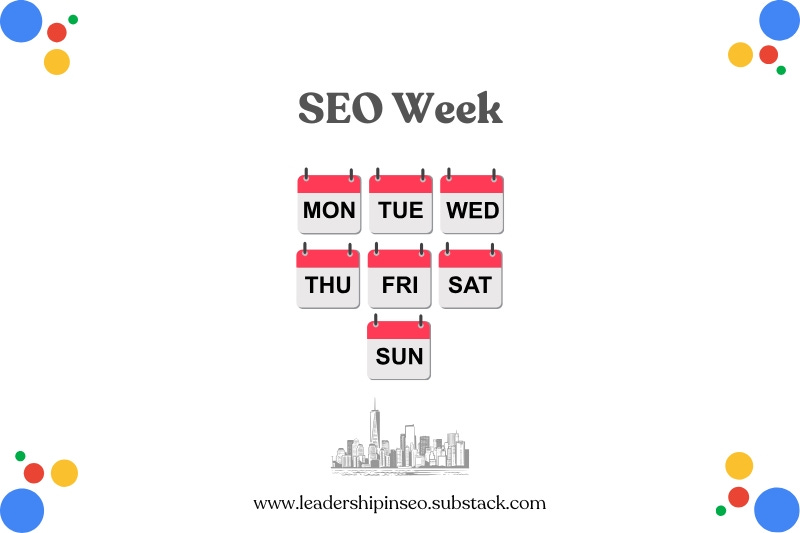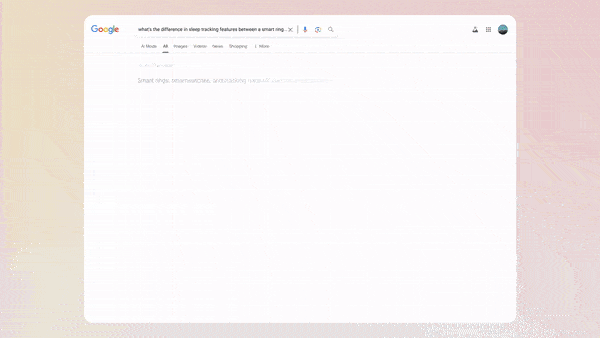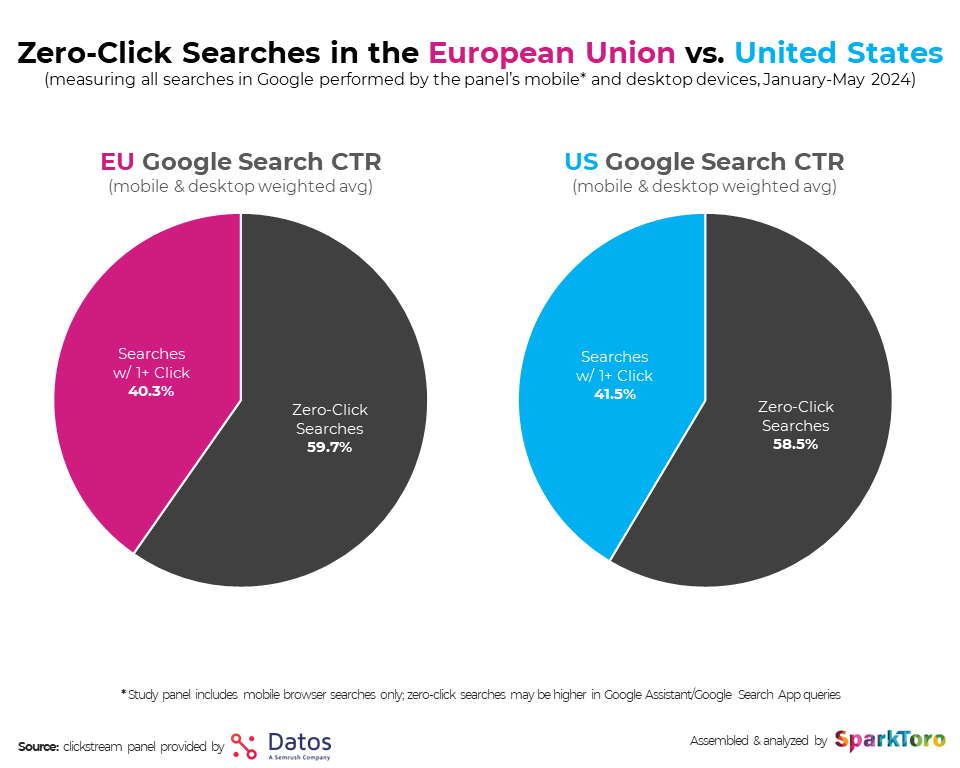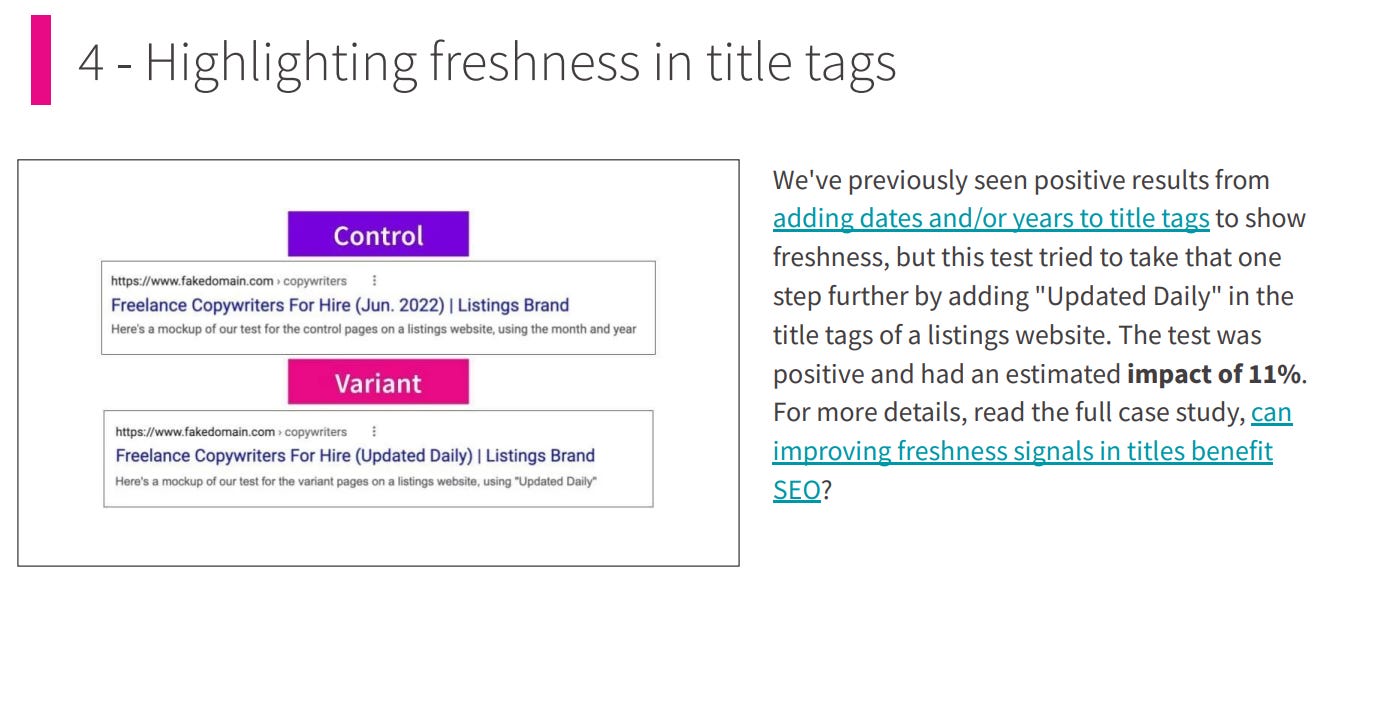A Round Up of SEO Week
My favourite decks, speakers and moments from an event I never thought I'd see the likes of in SEO
TL;DR
SEO Week was good. Really good. If you like SEO and NYC, how could it not be?
Search is changing. But it’s not dead. Maybe not even dying.
Don’t be limited by your job title. Think beyond search. Solve problems in and outside of your bubble to make yourself valuable
Test. Test. Test. Try simple things. Think like a marketer.
The speakers always make these events. Regardless of how good the snack game was (on point, very New York-ish), no amount of breakfast sandwiches can save us from a bunch of dullards.
Fortunately, the crisis was averted. The speakers were fantastic and just about outshone the snacks (I should add that I could only make the Wednesday and Thursday, so didn’t see everyone).
Yes, Busta Rhymes did show up. Yes, he was awesome. Weirdly funny. And I’ve never seen someone go through vodka like that on stage before - a true master at work.
And yes, Mike King can actually rap. But don’t tell him I said that.
WTF is SEO mentorship Program
Jessie and Shelby have setup a mentorship program for those in news and publishing SEO looking to be a mentor or mentee. Express your interest as a mentor or mentee using their mentorship program registration form.
V good idea! Any q’s send them to Jessie and Shelby at seoforjournalism@gmail.com.
My favourite talks
Cindy Krum - Google and MUM
I don’t currently have access to Cindy’s deck, but will try to find it
Cindy Krum gave a fantastic talk on the future of search (hint, it’s hyper, hyper personalised) and why we are where we are.
Conversational and predictive search. The MUM model. This is (probably) Google’s big plan. As we’ve moved from keywords to entities, we’re moving from entities to what we are colloquially calling MUM journeys.
I don’t mean dozens of trivial questions from dawn until dusk (although that is close to the truth). I mean personalised journey modelling. The core entity doesn’t change. But your ability to answer the user’s journey in the right format, at the right time will become more and more important.
Thanks to MUM, Google can understand the context and value of almost all forms of multimedia. And not every response or result requires a 3,000 word article.
Say it isn’t so, I hear you cry. You and me both, pal. But it’s the truth. Sometimes our pitiful dopamine-riddled minds would prefer something else.
The key to delivering results in the near future is less about fretting over AIOs and LLMs and more about predicting where search is going.
What does the next two years look like?
How can we connect with people?
AI Mode. Conversational and predictive search. Personalisation beyond anything we’ve seen before. Think about what this all means for you and your brand. For you as a marketer. Beyond search.
Recently, Google have done two things which align nicely with this theory;
They have rolled out Discover - their hyper personalised social network - on desktop.
They have consolidated their ccTLDs onto one .com domain
“Over the years, our ability to provide a local experience has improved…
Because of this improvement, country-level domains are no longer necessary. So we’ll begin redirecting traffic from these ccTLDs to google.com to streamline people’s experience on Search.”
Whilst Discover doesn’t have a direct revenue stream associated with it, it creates a huge ad platform and a network of engaged users. And a huge ad platform.
And Google have been toying with auto translation for a long time. Consolidating search onto a singular TLD on their own platform may be a coincidence. But I suspect not. I suspect this all has something to do with a singular, hyper personalised platform.
If you weren’t there and take in nothing from this write up, remember this. To generate an AIO, it costs Google more than 100 times a traditional results page. That’s 100.
So why, might you ask, would a company so driven by fiscal results (obviously every company is, but they’re certainly the best at it) go down this road?
Because things will change. AIOs will become cheaper to run and the long-term ad revenue associated with hyper personalisation is almost certainly insane.
Rand Fishkin - ‘You are bigger than SEO’
One of the OGs of the game, now quick to dissociate himself with SEO, Rand’s presentation on how to be more than just an SEO was, as always, polished.
I’ve used so much of Rand’s data from SparkToro over the last year that nothing he said was surprising.
Zero click searches are at an all time high (✔️)
Google is still by far and away the biggest referrer of traffic on the open web (✔️)
Search isn’t dying, but it is changing (✔️)
Almost half of searchers already know what they want - the rise of the cross platform navigational search (✔️)
And the last point was the crux of his presentation. Search isn’t dying, but it is changing. Whilst the general standard of websites has grown significantly, businesses will always need SEO. Good SEO at least.
Whatever the wider world thinks, ChatGPT is not a Google replacement. And it never will be. Hell, Google will probably win the wider AI game and grind these competitors into the dust. Gemini is good. Deep Research is in some ways game changing.
SEO. GEO. Whatever O you throw at it, those of us in SEO you are looking towards an audience-centric future. Those building connections with real people - remember, actual marketing…
We will be the ones who win.
Over the last few years, my drive has been more towards business impact and less towards SEO. But that’s not your only option. You can dive into the nefarious world of AI agents and efficiencies. Or data science and vibe coding. Even more of a product angle.
The world is your oyster. I don’t mean it smells of fish and tastes disgusting. I (and Rand obviously, it was his deck) mean you have options that are not limited to pure SEO. If you wish, you can evolve into something shinier.
Over the last week I’ve recently starting using SparkToro (not a sponsor, obviously) as an audience research tool. I want to know where our audience are, who they care about and the platforms and people we should build relationships with.
Early days, but it’s great value, incredibly easy to use and gives you a point of difference in the market.
Hint, your senior leadership teams will love you for it. Tell them where you should be spending money.
The businesses that understand their users best over the next few years will be the winners.
Where do your audience spend time?
What websites and social platforms do they use?
How can you be present in the new pinball machine-like customer journey?

By understanding who and what your users trust. Then creating an audience and content strategy that puts you there.
Will Critchlow - SEO lessons learned from thousands of SEO experiments
SEO testing is something I have never done enough of. Partly because it’s always felt inaccessible (particularly agency side). But mainly because it requires a level of granularity and patience, which haven’t always played to my strengths.
But I would highly encourage you to learn from my mistakes. Start small. Some tests are frighteningly easy.
Let me give you an example.
Well, let me give you one of Will’s examples might be more accurate.
Dates in title tags
These always seem like a good idea. May 2025 appended to the end of a title tag. Surely that will increase clickability? It screams freshness.
It does, but for many sites, they get forgotten about and seasons change, glacial shift occurs and your title tag is millennia out of date. Equally, this might not do your content justice. Some pages are updated far more frequently than monthly. Daily even.
In that scenario, what seems more effective?
A title that clearly states just how frequently the page is updated. One you never even have to change. Or a tag that could make the page seem weeks out of date?
This isn’t really a hypothetical question, because Will had the answer. ‘Updated daily’ was a clear winner. By 11%.
These are the kind of tests I like. Simple, straightforward and effective.
Will ran through lots of others, including;
Removing meta descriptions boosted organic traffic by 4.2%
When you don’t add a meta description to your article, Google is forced to write one for you. It turns out that the gibberish this despotic machine writes is better than the one we carefully cultivate ourselves.
In click terms, at least. The absolute shame. If I find out my writing gets beaten by a malfunctioning robot, I will hold all of you responsible.
Removing ‘SEO’ text increases organic traffic
It’s always good to have your preconceived notions challenged.
‘Text on category or tag pages provides context for Google. It will help us to rank.’
Or not... The favourable engagement metrics associated with boosting your priority content higher up the page may outweigh the need to have ‘SEO text’ on landing pages.
Engagement and experience over SEO-ing a page.
Will also discussed how to properly forecast for search. There were clear takeaways;
Organic performance will drop if you do nothing
You can’t stack good ideas and assume eternal growth
When forecasting for growth, you have to take into account decline. This means as you begin to hit plateaus and ceilings, unless you have no markets to target or ideas to drive growth, you need to factor in natural decline.
Excellent presentation. Well delivered. Clear takeaways and things to make you look good. I love this kind of stuff.
If I can, I will be back next year. I’ll never turn down a semi-comped trip to NYC. Particularly if someone else in SEO turns up to rap.














